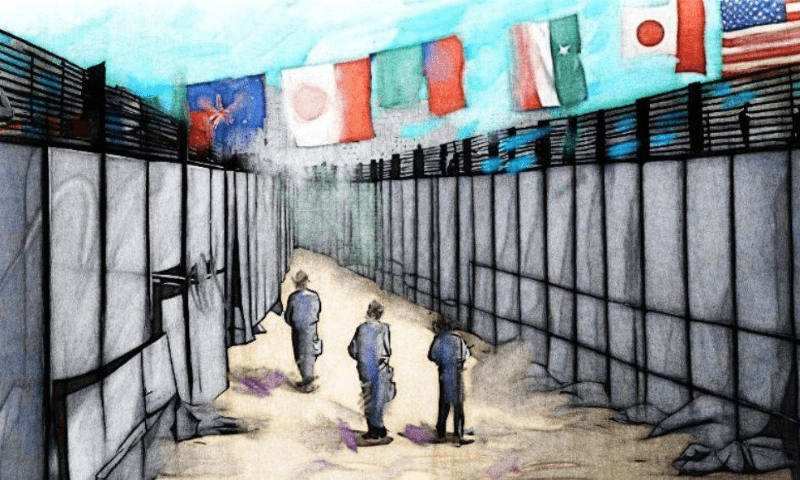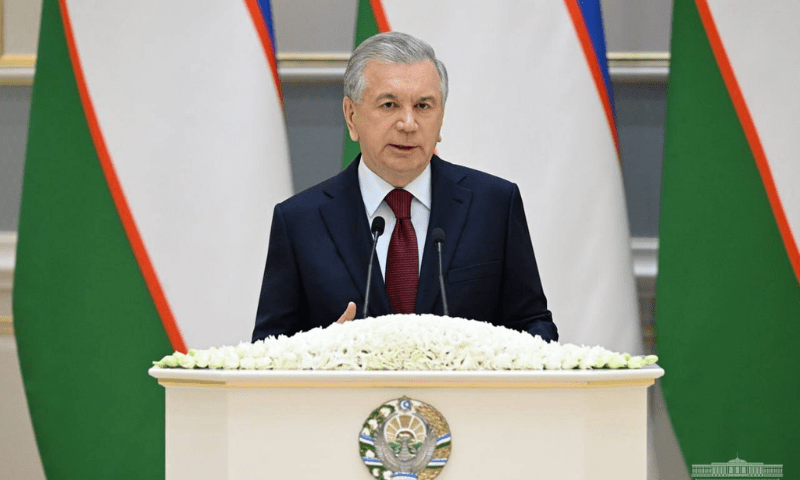Tashkent, 5 September 2024 (TDI): Uzbekistan’s President Shavkat Mirziyoyev has warned that international conflicts and tensions among the world’s major powers are weakening global efforts against terrorism and extremism.
Speaking at a regional anti-terrorism conference in Tashkent this week, Mirziyoyev highlighted the detrimental effects of geopolitical rivalries on counter-terrorism cooperation.
Although he did not specifically name any conflicts or countries, Mirziyoyev appeared to allude to several ongoing global crises, such as Russia’s war in Ukraine, the conflict in Gaza which has escalated fears of a broader Middle East war, and rising tensions between the United States and China.

Central Asian nations like Uzbekistan are trying to maintain balanced relations with these major powers while combating the threat of religious extremism, which continues to attract recruits from the region.
“Unfortunately, geopolitical acrimony and the intensification of conflicts, the lack of mutual trust between the leading countries, and the decline of the role of global security institutions have a negative impact on the development of open and effective international cooperation in the fight against the threats of terrorism and extremism,” Mirziyoyev said.
Dialogue, Collaboration
He called for greater dialogue and collaboration to effectively counter the problem.
The conference, organized under the auspices of the Shanghai Cooperation Organization (SCO) and the Commonwealth of Independent States (CIS), focused on strategies to prevent radicalization through education, and to curb the financing of terrorism.
The two-day event in the Uzbek capital concludes on Thursday.
اۉزبېکستان استخبارات تشکیلاتی نینگ باشلیغی عبدالسلام عزیزوف، ترورچیلیککه قرشی کورهش اوچون طالبان بیلن همکارلیک اېتیلیشینی اورغولهگن.
تاشکینت شهریده چهارشنبه کونی، ۱۴ – سنبله، اوتکزیلگن شانگهای همکارلیکلر تشکیلاتی ییغینیده، نطق سۉزلهگن عبدالسلام عزیزوف، بو مساله توغریسیده… pic.twitter.com/sCIzFadCjx
— UZBEK TV (@UzbekTelevision) September 4, 2024
Highlighting the region’s security challenges, Mirziyoyev referred to the deadliest terrorist attack in Central Asia this year: the March 22 attack on Crocus City Hall in Moscow, where around 140 people were killed by gunmen.
The Islamic State (IS) group claimed responsibility for the attack, which reportedly involved Tajik migrants in Russia.
The Uzbek president also underscored the increasing threat of cyberterrorism.
“Active work on illegal activities, recruitment, and promotion of radical ideas is increasingly carried out through Internet networks and channels that do not recognize national borders and legal norms,” Mirziyoyev said.
He noted that online manipulation often targets vulnerable populations, such as young people and labor migrants, pushing them toward criminal activity.
The conference aimed to strengthen cooperation and shared approaches to tackling the complex challenges posed by terrorism and extremism in the region.
Farkhund Yousafzai is an Associate Editor at The Diplomatic Insight.



